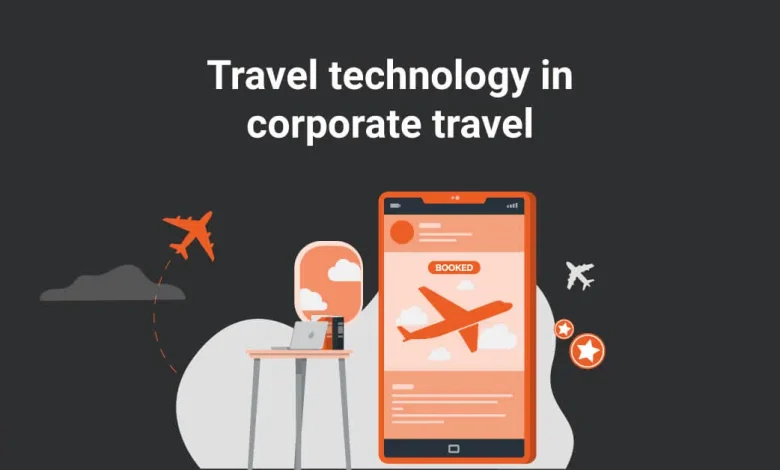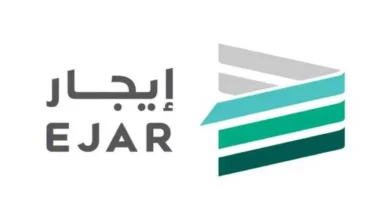corporate travel changes by technology apkmodsplanet

In today’s fast-paced business world, corporate travel is undergoing significant changes due to advancements in technology. These changes are reshaping the way companies approach travel and are aimed at improving efficiency, cost-effectiveness, and traveler safety. With the help of AI and ML algorithms, travel plans can be optimized based on individual preferences and cost considerations. Smartphone applications have become essential tools for managing all aspects of business trips. Additionally, there is a growing emphasis on sustainable tourism, with companies prioritizing eco-friendly planning. Predictive analytics enable businesses to plan ahead and negotiate better pricing with suppliers. Real-time information on travel delays allows for quick responses to unforeseen incidents, ensuring traveler safety. Companies are also leveraging data analytics for risk assessment and real-time tracking of employees during their travels. Furthermore, the rise of bleisure travel, a combination of business and leisure trips, is being recognized as an opportunity for personal growth and employee satisfaction. The COVID-19 pandemic has further accelerated changes in corporate travel, with remote work and online conferences becoming more prevalent. As a result, companies are reevaluating their travel policies to accommodate flexible work arrangements and questioning the value of in-person meetings. By embracing these technological advancements and remaining adaptable to new developments, businesses can effectively manage their corporate travel programs and stay ahead in today’s dynamic market.
Evolution of Technology in Corporate Travel
How technology has revolutionized corporate travel management
In recent years, technology has played a pivotal role in transforming the corporate travel industry. With the advent of innovative solutions, business travelers now enjoy a more customized and seamless travel experience. From online reservation systems that offer competitive prices to mobile apps that provide easy booking and expense reporting, technology has made business travel more convenient than ever before.
One significant change brought about by technology is traveler tracking. Companies can now easily keep track of their employees’ whereabouts, ensuring their safety while on the road. Additionally, the shift from paper receipts to digital expense management has streamlined the reimbursement process for business travelers.
Furthermore, the expectation of free Wi-Fi or high-speed internet has become a standard requirement for hotels and airlines. Business travelers rely heavily on their mobile devices, making it essential for employers to provide accessible and convenient travel information through mobile apps.
As we move forward, integrating advanced technology into corporate travel management will continue to enhance the overall travel experience for businesses and their employees. Embracing these technological advancements will enable companies to stay ahead in an ever-evolving industry.
In conclusion, technology has revolutionized corporate travel management by providing customized information, seamless booking and expense reporting, traveler tracking, and convenient access to travel information. Embracing these advancements is crucial for businesses looking to optimize their travel processes and provide a hassle-free experience for their employees.
Online Booking Platforms
Advantages and features of online booking platforms for corporate travel
Online booking platforms have revolutionized the way businesses handle corporate travel. With the advancement of technology, these platforms offer several advantages and features that make the process more efficient and convenient.
- Streamlined Booking Process: Online booking platforms allow employees to book flights, hotels, and other travel services in one place, eliminating the need for multiple websites or phone calls. This saves time and reduces the chances of errors or miscommunication.
- Cost Savings: These platforms provide access to a wide range of options, allowing businesses to compare prices and find the best deals. This helps in reducing travel costs and maximizing savings.
- Policy Compliance: Online booking platforms can be customized to include the company’s travel policy, ensuring that employees make bookings within the set guidelines. This helps in enforcing policy compliance and avoiding unnecessary expenses.
- Data Insights: These platforms collect data on employee travel patterns, expenses, and preferences. This data can be analyzed to gain insights and optimize travel management strategies.
- 24/7 Support: Many online booking platforms offer round-the-clock customer support, ensuring that employees have assistance whenever they need it during their travels.
- Integration with Expense Management Systems: These platforms can integrate with expense management systems, making it easier for businesses to track and manage travel expenses.
In conclusion, online booking platforms have transformed corporate travel by providing a streamlined and cost-effective solution. With their advantages and features, businesses can improve their travel management processes and enhance the overall travel experience for their employees.
Mobile Apps for Corporate Travel
Benefits of using mobile apps for managing corporate travel arrangements
In today’s fast-paced business world, technology has revolutionized the way corporate travel is managed. Mobile apps have become essential tools for business travelers, offering numerous benefits for managing travel arrangements.
- Convenience: Mobile apps provide a convenient platform for booking flights, hotels, and rental cars with just a few taps. Travelers can access all their travel information in one place, eliminating the need for carrying around stacks of paperwork and printed itineraries.
- Real-time updates: Mobile apps offer real-time updates on flight schedules, delays, traffic conditions, and weather forecasts. This helps travelers stay informed and make necessary adjustments to their travel plans to avoid disruptions.
- Enhanced safety: Many travel apps provide real-time safety alerts and updates on potential risks. Companies can track their employees’ locations and ensure their safety in case of emergencies.
- Improved productivity: With mobile apps, employees can stay connected with colleagues and clients, access important documents, and manage tasks while on the go. This enhances productivity during business trips.
- Cost savings: Corporate travel apps allow employees to compare prices and find the most cost-effective options for flights, accommodations, and ground transportation. This helps companies keep travel costs under control.
Overall, mobile apps have transformed corporate travel by simplifying travel planning, enhancing safety, improving productivity, and reducing costs. Embracing these technologies can greatly enhance the travel experience for business travelers.
Artificial Intelligence in Corporate Travel
The role of AI in streamlining travel planning, expense management, and risk assessment
Artificial Intelligence (AI) has revolutionized the corporate travel industry, making travel planning more efficient and cost-effective. With AI-powered tools, businesses can streamline their travel planning process by automating tasks such as flight and hotel bookings. AI also plays a crucial role in expense management, providing detailed reporting and analysis to help companies optimize their travel spending. Additionally, AI can assist in risk assessment by providing real-time updates on potential travel risks and emergencies. Overall, AI technology has transformed corporate travel, making it easier for businesses to manage their travel programs effectively.
Virtual Meetings and Video Conferencing
How virtual meetings and video conferencing have changed the landscape of corporate travel
The rise of virtual meetings and video conferencing technology has brought significant changes to the world of corporate travel. With the ability to connect with colleagues, clients, and partners from anywhere in the world, businesses are finding new ways to conduct meetings without the need for extensive travel.
Virtual meetings offer a cost-effective alternative to traditional corporate travel, allowing companies to reduce their travel budgets while still maintaining effective communication. With a wide range of tools and platforms available, businesses can easily connect with others through video calls, web conferences, and online collaboration.
The convenience and accessibility of virtual meetings have also led to increased productivity and efficiency. Instead of spending hours traveling to attend a meeting, employees can now join from their own offices or even from the comfort of their homes. This saves time, reduces stress, and allows for more focused and productive discussions.
Furthermore, virtual meetings have opened up opportunities for global collaboration and networking. Businesses can now connect with partners and clients from different countries without the need for extensive travel. This has expanded business opportunities and fostered international relationships in ways that were not possible before.
While virtual meetings cannot completely replace the need for face-to-face interactions, they have certainly changed the landscape of corporate travel. By leveraging technology, businesses can now conduct meetings efficiently, reduce costs, and expand their reach on a global scale.
Data Analytics and Reporting Tools
Utilizing data analytics and reporting tools to optimize corporate travel expenses and improve decision-making
In today’s digital age, technology has revolutionized the way businesses manage their corporate travel. One significant change is the use of data analytics and reporting tools to optimize travel expenses and improve decision-making.
By harnessing the power of data analytics, businesses can gain valuable insights into their travel patterns, expenses, and trends. These tools allow companies to analyze their travel data in real-time, identify cost-saving opportunities, and make informed decisions to optimize their travel budget.
Through data analytics and reporting tools, businesses can track key performance indicators, monitor policy compliance, and identify areas where expenses can be reduced. This enables companies to make strategic adjustments to their travel policies, negotiate better deals with suppliers, and ultimately save money.
Additionally, these tools provide businesses with comprehensive reports that offer a clear overview of their travel expenses. This allows decision-makers to have a holistic view of their corporate travel program and make data-driven decisions based on accurate information.
In conclusion, incorporating data analytics and reporting tools into corporate travel management can lead to significant cost savings and improved decision-making. By leveraging technology, businesses can optimize their travel expenses while ensuring that their employees have a seamless and efficient travel experience.
Travel Security and Risk Management Solutions
Importance of incorporating travel security and risk management solutions in corporate travel policies
In today’s rapidly evolving world, corporate travel has become an essential part of doing business. However, with the increasing risks and uncertainties, it is crucial for companies to prioritize the safety and security of their employees while traveling.
By incorporating travel security and risk management solutions into their corporate travel policies, companies can ensure the well-being of their employees and protect their business interests. Here are some key reasons why this is important:
- Employee Safety: Travel security solutions provide real-time monitoring and alerts, enabling companies to track their employees’ whereabouts and respond quickly in case of emergencies. This ensures that employees feel safe and supported during their travels.
- Risk Mitigation: By implementing risk management solutions, companies can identify potential threats and take proactive measures to mitigate them. This includes assessing travel destinations, providing travel advisories, and offering comprehensive insurance coverage.
- Legal Compliance: Incorporating travel security and risk management solutions helps companies comply with legal obligations related to duty of care. It demonstrates a commitment to employee well-being and minimizes the company’s liability in case of any unfortunate incidents.
- Business Continuity: By prioritizing travel security, companies can minimize disruptions caused by unforeseen events. This ensures that business operations continue smoothly, even in challenging situations.
In conclusion, incorporating travel security and risk management solutions in corporate travel policies is essential for ensuring employee safety, mitigating risks, complying with legal obligations, and maintaining business continuity. By investing in these solutions, companies can create a secure and efficient travel environment for their employees.
Future Trends in Corporate Travel Technology
Exploring emerging technologies that will shape the future of corporate travel
The corporate travel industry is constantly evolving, and technology plays a crucial role in driving these changes. As businesses adapt to new travel norms, emerging technologies are shaping the future of corporate travel in exciting ways.
- Artificial Intelligence (AI): AI-powered algorithms are revolutionizing travel planning by optimizing itineraries based on individual preferences and cost-effectiveness. AI also enables real-time information on travel delays, ensuring traveler safety and minimizing inconveniences.
- Mobile Applications: Smartphone apps have become indispensable tools for managing all aspects of business trips. From booking flights and accommodations to tracking expenses, mobile apps provide convenience and efficiency for business travelers.
- Sustainability Initiatives: With a growing emphasis on social responsibility, businesses are prioritizing eco-friendly planning for corporate travels. This includes choosing eco-friendly lodgings, electric vehicle rentals, and carbon offset initiatives.
- Virtual Meetings: The COVID-19 pandemic has accelerated the adoption of virtual meetings and online conferences. Hybrid models that blend virtual and in-person elements are likely to shape the future of business conferences.
- Data Analytics: By analyzing past business trips and costs, businesses can improve their travel choices and negotiate better pricing with suppliers. Predictive analytics also help in planning ahead for peak travel seasons.
As technology continues to advance, corporate travel will become more efficient, personalized, and sustainable. Embracing these emerging technologies will allow businesses to stay ahead in the ever-changing landscape of corporate travel.
Conclusion
In conclusion, technology has had a significant impact on corporate travel, revolutionizing the way businesses plan and book their trips. With the use of technology, travel agencies have been able to enhance communication, convenience, productivity, and the speed of business and marketing. While some may fear that technology will replace travel agents, the reality is that travel agencies remain essential in the industry. They provide expertise and personalized assistance that online booking engines cannot replicate. As technology continues to evolve, successful travel agencies will adapt and embrace new tools to enhance the travel experience for their clients.
Summary of the impact of technology on corporate travel and its potential future developments
The impact of technology on corporate travel has been profound. It has made booking trips faster and more convenient, allowing businesses to communicate with their travel partners seamlessly. The rise of online booking engines has empowered customers to research and compare prices easily. Despite these advancements, travel agencies remain relevant as they offer personalized assistance and expertise. In the future, technology will continue to evolve, and successful travel agencies will need to adapt to new tools and trends to meet the changing needs of their clients.



